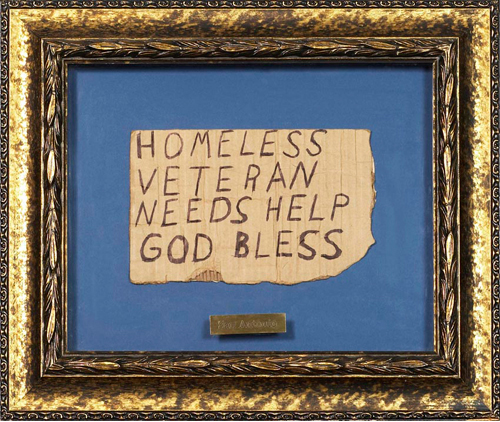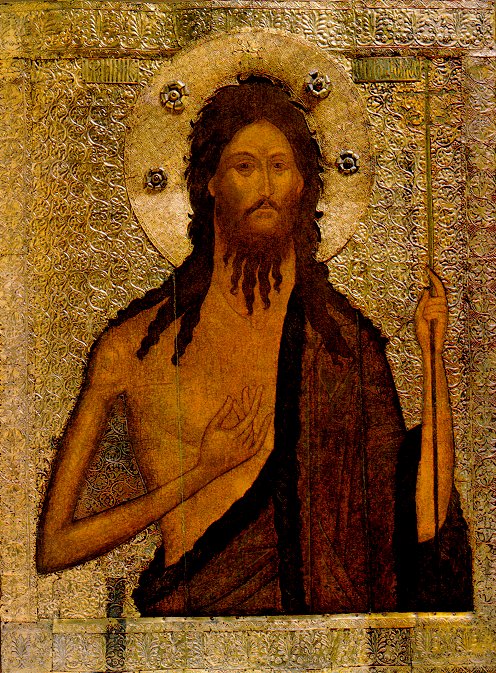Jesus knew the end was coming. What was this end? Well, just the judgment of all humanity, the final determination of the destiny of every individual.
And the problem was, no one was ready.
The judgment wasn't based on how many sacrifices one made, how often someone went to church, whether they signed the correct doctrinal statement, or if they were nice people. It was based on one thing alone-- how merciful we were to Gods's people, especially those in the most serious need.
Well, many people don't really have the opportunity to help folks like this, and many others think that God is so petty as to determine eternal judgment based on how far a person walked on the Sabbath or whether they refrained from masturbating. So Jesus determined to establish a test. He would send out evangelists, who had a pretty simple, short sermon: The kingdom of God is coming. They would clearly be poor and in need, they would have no wallets, no baggage, no food. To pass the test, all people had to do is to meet the needs of these testers. If they don't feed or give them shelter, they fail the test.
This is the same test today. Jesus sends out his people all over the world, and all we have to do is care for their basic needs, and we are good. Who are these people? Well, there are a few desperately poor pastors and evangelists who should be helped. Also Christians who give everything to the poor and so become poor themselves-- they count. But also the beggars. The millions of beggars who are also God's people.
Did you know that a large percentage of the homeless are people doing their best to follow Jesus? They love God and appreciate him. Sure, many of them are weak, some of them are mentally ill and all of them are desperately poor. But they are God's chosen apostles. And they were sent to test you.
When you see a beggar hold a cardboard sign that says "God bless" that isn't some evil person seeking to steal your money-- that is an apostle sent by Jesus to test you. You might give them something to eat. You might give them some change. You might go the extra mile and carry socks or hand warmers in your car to give them. You might be very generous and offer them a place to stay overnight, perhaps a motel room. But if you do nothing... if you reject God's opportunity to show mercy...
"Judgment will be merciless on those who do not show mercy" James 2:13
And the problem was, no one was ready.
The judgment wasn't based on how many sacrifices one made, how often someone went to church, whether they signed the correct doctrinal statement, or if they were nice people. It was based on one thing alone-- how merciful we were to Gods's people, especially those in the most serious need.
Well, many people don't really have the opportunity to help folks like this, and many others think that God is so petty as to determine eternal judgment based on how far a person walked on the Sabbath or whether they refrained from masturbating. So Jesus determined to establish a test. He would send out evangelists, who had a pretty simple, short sermon: The kingdom of God is coming. They would clearly be poor and in need, they would have no wallets, no baggage, no food. To pass the test, all people had to do is to meet the needs of these testers. If they don't feed or give them shelter, they fail the test.
This is the same test today. Jesus sends out his people all over the world, and all we have to do is care for their basic needs, and we are good. Who are these people? Well, there are a few desperately poor pastors and evangelists who should be helped. Also Christians who give everything to the poor and so become poor themselves-- they count. But also the beggars. The millions of beggars who are also God's people.
Did you know that a large percentage of the homeless are people doing their best to follow Jesus? They love God and appreciate him. Sure, many of them are weak, some of them are mentally ill and all of them are desperately poor. But they are God's chosen apostles. And they were sent to test you.
When you see a beggar hold a cardboard sign that says "God bless" that isn't some evil person seeking to steal your money-- that is an apostle sent by Jesus to test you. You might give them something to eat. You might give them some change. You might go the extra mile and carry socks or hand warmers in your car to give them. You might be very generous and offer them a place to stay overnight, perhaps a motel room. But if you do nothing... if you reject God's opportunity to show mercy...
"Judgment will be merciless on those who do not show mercy" James 2:13















